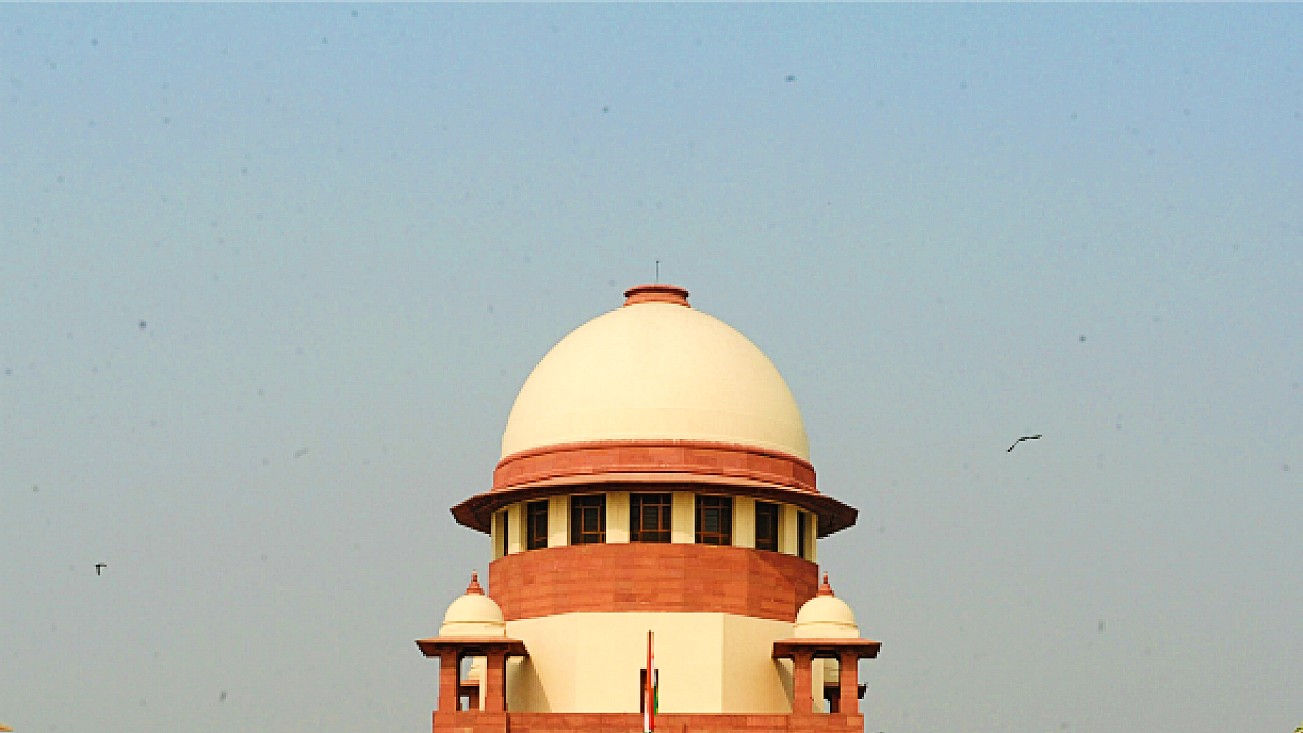In Civil Appeal No. 1598 of 2023 -SC- No right, title, or interest in immovable property without registered document: Supreme Court
Justice Vikram Nath & Justice Rajesh Bindal [01-11-2023]

Read Order: Shakeel Ahmed V. Syed Akhlaq Hussain
Chahat Varma
New Delhi, November 24, 2023: In a recent ruling, the Supreme Court has upheld the importance of registered documents in property disputes, setting aside a Delhi High Court judgment that had granted possession of a property based on an unregistered agreement to sell.
The present appeal had challenged the judgment and order dated 23.08.2018 passed by the Delhi High Court. In the said case, Shakeel Ahmed (appellant), was the defendant in a suit for possession and mesne profits filed by Syed Akhlaq Hussain (respondent), concerning a property. The suit relied on a Power of Attorney, an agreement to sell, an affidavit, and a will executed in favour of the respondent. The appellant contested the suit, asserting ownership of the property through an oral gift (Hiba) from its owner, Laiq Ahmed, who happened to be appellant’s brother. He also argued that the suit was not maintainable as the documents forming its basis were not admissible or enforceable under the law.
The Trial Court framed eleven issues, and granted a decree for possession along with mesne profits to the respondent. In the subsequent appeal, the High Court confirmed the Trial Court's findings on Hiba and the suit's basis on an unregistered document. The High Court upheld the decree of possession on the grounds that the respondent filed the suit as an Attorney for Laiq Ahmed, the property owner, and Laiq Ahmed did not object to the respondent seeking possession. The High Court, based solely on this ground, confirmed the decree of possession and dismissed the appeal.
The division bench of Justice Vikram Nath and Justice Rajesh Bindal asserted that no title could be transferred concerning immovable properties based on an unregistered Agreement to Sell or an unregistered General Power of Attorney. According to the Registration Act, 1908, a document requiring compulsory registration would not confer any right, let alone a legally enforceable one to approach a Court of Law. Even if these documents, such as the Agreement to Sell and the Power of Attorney, were registered, it wouldn't imply that the respondent had acquired title over the property in question. The most that could be claimed, even with a registered agreement to sell, would be relief of specific performance in appropriate proceedings.
“Law is well settled that no right, title or interest in immovable property can be conferred without a registered document,” said the division bench.
The bench maintained that the restriction on registering documents did not override statutory provisions to confer title based on unregistered documents concerning immovable property. Given this established stance, the bench held that the respondent could not have sustained the suit for possession and mesne profits against the appellant, who was admittedly in possession of the property, whether as an owner or a licensee.
The bench concluded that if the respondent intended to evict the appellant, considering him a licensee, the appropriate course would have been to file a suit on behalf of the true owner or landlord under specific instructions of a Power of Attorney, claiming to have been receiving rent from the appellant. Alternatively, the respondent could have acted as the Attorney of the true owner to institute a suit on his behalf for eviction and possession. However, as the contents of the plaint did not align with these scenarios, the bench disagreed with the reasoning provided by the High Court in the impugned order.
Therefore, based on the reasons stated above, the Court determined that the challenged judgment should be set aside, and the suit should be dismissed. Consequently, the appeal was allowed, the impugned judgment was set aside, and the suit was dismissed.
Sign up for our weekly newsletter to stay up to date on our product, events featured blog, special offer and all of the exciting things that take place here at Legitquest.




Add a Comment